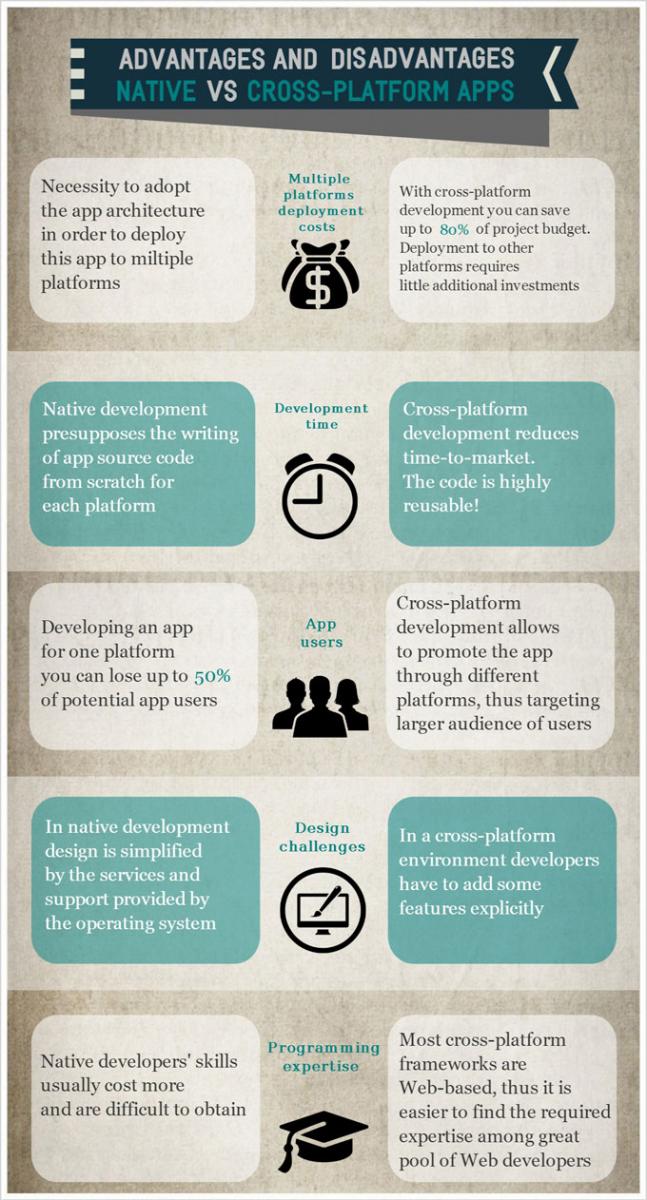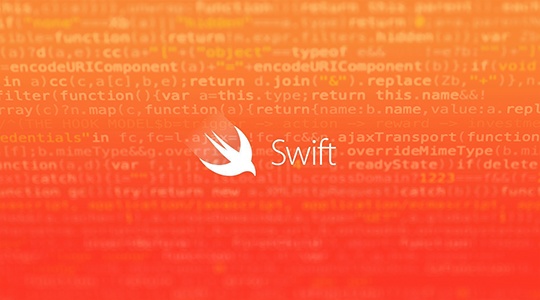Mobile application development is rich in opportunities for both mobile developers and end users. However many customers face the problem of what device to target and what development framework to use to create reliable, fast-running and at the same time simple app.
The main aim of a developer is to significantly boost the productivity and quality of mobile app. To achieve this goal and help you make more informed decision, we will compare two approaches in development of mobile application basing on our own experience in the field, namely in:
- Native development
- Cross-platform development
Tools used to develop cross-platform mobile apps
Tools vendors have created multiple development environments, but all of them fall into two main categories: native tools and cross-platform tools.
Native tools are designed to create applications that run on a specific platform.
Cross-platform tools provide developers the flexibility to create an application that runs across multiple mobile devices and satisfy the principle of “write-once-run-everywhere". Examples of cross-platform frameworks and technologies we use to create cross-platform mobile applications:
- Xamarin – allow us to create cross-platform apps with the fully native user interface as well as native look & feel for each platform. Besides, Xamarin tools provide the range of undeniable benefits for both developers and end users, namely:
- Possibility to share up to 90% of existing code between mobile platforms.
- Full access to Android and iOS APIs.
- Ability to reuse the existing code from favorite .NET libraries.
- Possibility to develop code in Visual Studio.
- Ability to target up to 90% of all mobile users.
- Unity is a cross-platform game engine. It allows us creating applications that run on mobile, web, desktop, and console devices.
- Supports all major platforms such as Apple iOS, Android, Windows Phone 8, Blackberry 10, etc.
- Developers have control over the delivery of the app to mobile devices, web browsers, desktops, consoles, etc.
- Ability to target nearly all mobile users and raise the income of the project.
According to the study that shows the key trends in the U.S. smartphone industry for March 2014, Android remains the top mobile platform with 52.2 percent market share, followed by Apple with 41.4 percent, BlackBerry with 2.7 percent, Microsoft with 3.3 percent and Symbian with 0.2 percent. With the toolkit used by Program-Ace, we can develop a mobile app that will cover nearly all platforms and devices.
Pros and cons of cross-platform and native mobile development
We believe that each approach in mobile application development is good for specific purposes and application requirements. Let’s consider the advantages and disadvantages of both approaches.

Other important points of mobile development
- UI User Experience
Native apps have a more responsive interface, especially for animations and gestures. With native development, you have access to the full device APIs.
Many cross-platform development tools offer native APIs to use, but it may refer to a limited subset of the device-specific features and often you have to wait until they are released in order to use them.
- Performance
Native applications run more smoothly on whichever mobile devices use that operating system.
The cross-compilation process can sometimes be slower than native tools. This difference can be easily noted during graphical rendering and animations.
- Device-specific features
Native tools let developers take full advantages of platform functionality.
The cross-platform application serves everyone but has more limited functionality.
- Updates
It is easier to maintain and deploy changes for one application that runs across all platforms. But sometimes some troubles may occur when operating systems release updates.
- Security
Operating systems like iOS and Android offer built-in security services like data encryption.
Cross-platform apps present more security risks than native apps. However, the well-developed cross-platform app can be highly competitive with the native app insecurity issues.
Why Program-Ace
Program-Ace cross-platform development team utilizes its solid experience to create reliable and efficient apps that run successfully on multiple devices and platforms, and meet all the requirements. As you can see, both approaches in the development of mobile apps have cons and pros, but we believe that both methods can be combined to weaken the disadvantages and strengthen the benefits. Our huge experience in cross-platform development allows us to create mobile apps that combine preciseness and efficiency of native development with flexibility and automation of cross-platform apps.























